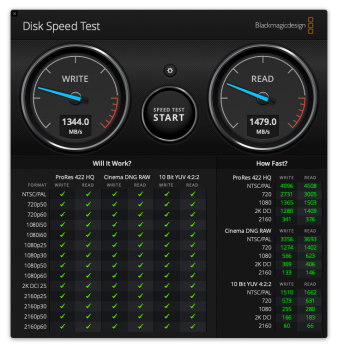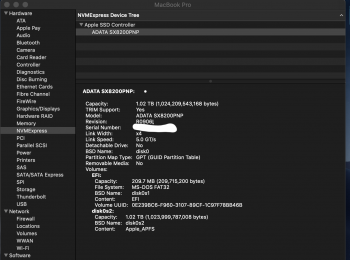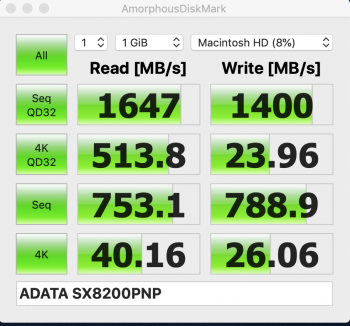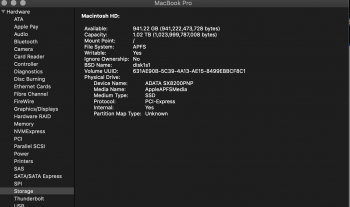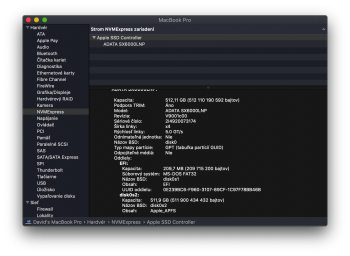Tape is not required.
I'm planning to buy the adapter and the Samsung 970 Evo 500 in the next 5 days to upgrade this machine.
Thank you!!![/QUOTE]
thanks for the quick help, I just finished installing the SSD on my MacBook and did a speed test using BlackMagic and amorphousDiskMask getting the speed of 1.3gb to write and 1.4gb read and with DiskMask getting 1.6/1.4 r/w speed is that suppose to be the speed I'm getting or I did something wrong?
Any help and suggestions would be helpful
hardware Overview:
Model Name: MacBook Pro
Model Identifier: MacBookPro12,1
Processor Name: Intel Core i5
Processor Speed: 2.7 GHz
Number of Processors: 1
Total Number of Cores: 2
L2 Cache (per Core): 256 KB
L3 Cache: 3 MB
Memory: 8 GB
Boot ROM Version: 182.0.0.0.0
SMC Version (system): 2.28f7


